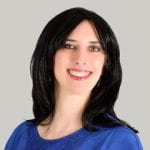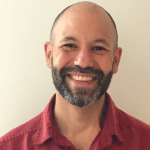On Wednesday at 2:00 PM, on March 1st, we interview Cloee Cooper. Cloee is a Senior Research Analyst at Political Research Associates, which is a social justice research and strategy center. She has been working for PRA for about 5 years, and longer in journalism as a whole. Although our interview with her was somewhat last minute, we were able to touch on so many issues in our time with her.
In our interview, we talked a bit about what we think the next 10 years will be like, in terms of online radicalization and extremism. She told us that she thinks there will be a lot more violence, but she hopes that it will eventually calm down. She mentioned a couple of times the events of 2020 and how police brutality came into the spotlight. Once something is revealed, people don’t just forget about it.
We’re really appreciative that we got to interview Cloee and are happy with the information we found out.








